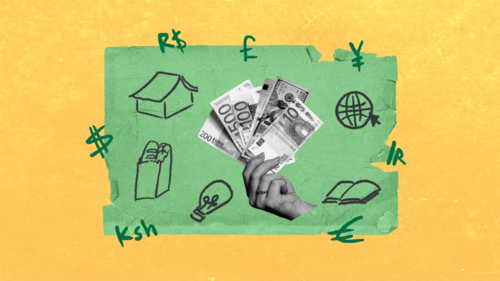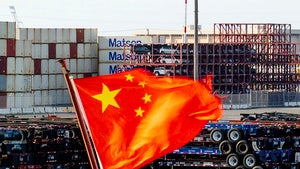Does Universal Basic Income Work? These Countries are Finding Out.

England is the latest in a string of countries to test giving its residents a guaranteed amount of money every month, also known as a universal basic income (UBI).
In short: England is the latest in a string of countries to test giving its residents a guaranteed amount of money every month, also known as a universal basic income (UBI). UBI has been proven to reduce poverty, yet few countries have embraced it as policy.
What is Universal Basic Income?
UBI is a recurring cash payment to someone regardless of their work status or other qualifiers such as income, age, etc. There are five defining characteristics of a UBI, according to the Stanford Basic Income Lab. UBI is:
- a recurring payment (monthly, bi-weekly, etc.) rather than a one-time payment;
- a cash payment;
- universal – meaning not targeted to any specific population;
- paid to individuals rather than households; and
- unconditional – meaning it has no work requirements.
A real-life example of UBI in action is in England. The program was launched at the end of June 2023, and 30 residents will receive about $2,013 every month for two years, regardless of their work or economic status.
It’s worth noting that this test isn’t government-sponsored. The think tank Autonomy is running this experiment in north London and northeast England.
What is the Goal of UBI?
UBI is meant to ensure some level of economic security – either to help recover from a crisis, or to cover daily expenses that would be unaffordable otherwise – instead of waiting for the government to step in for individual cases of assistance.
Doug MacKay, a public policy professor at the University of North Carolina, pointed to the economic fallout of the COVID-19 pandemic as an example of how UBI could be helpful.
“When people are losing their jobs, it takes a long time for government to react,” he told a UNC publication. “Had we had a basic income in place, that would have been a way of ensuring people are secure, have the ability to meet their basic needs and live a dignified human life. They don’t need to appeal to various agencies. They have consistency in terms of being able to afford housing, food and so on. It’s an anti-poverty measure.”
Does UBI Work?
Multiple recent studies have shown that UBI can lead to improved health outcomes and increased employment for recipients of UBI.
For example, a Finnish study showed that average life satisfaction for a group that received money was higher — 7.3 out of 10 — compared to a group that received no money, whose average life satisfaction rating was 6.8.
“People receiving the basic income reported better health and lower levels of stress, depression, sadness, and loneliness—all major determinants of happiness—than people in the control group,” according to a report on the study.
Another study in Stockton, California, found that full-time employment increased because UBI gave people time to apply for better jobs, rather than having to work multiple part-time jobs. And a study in Hudson, New York, found that all employment increased from 29 to 63 percent, which contradicts opponents of UBI that claim it would “destroy” any incentive to work.
Where has UBI Been Tested?
There have been at least 160 UBI tests globally, according to the Stanford Basic Income Lab.
About two-thirds of those tests have occurred in the U.S., but the largest and longest test is underway in Kenya. Since 2017, a charity is giving monthly payments of about 75 cents per day to over 20,000 Kenyans across about 200 rural villages until 2029.
Where has UBI Been Implemented?
In 2011, Iran introduced a “nationwide unconditional cash transfer program to compensate for the phase-out of subsidies on bread, water, electricity, heating, and fuel.” The average Iranian household received 29% of its income from this program – in 2019, each household received IRR 550,000, which was about $20 at the time.
Another example is Alaska. Since 1982, the Alaskan government has given each citizen an annual check based on the state’s oil production. The payout typically ranges from $1,000 to $2,000, but it reached a high of $3,284 in 2022.


Related Events

Victor Cha, Paul Heer, and Leslie Vinjamuri discuss how major powers are turning economic interdependence into a geopolitical tool and how other countries can respond.

Daleep Singh and Brent Neiman discuss global economic policy and macroeconomic trends in this edition of the Global Economy Roundtable Series.

Suzanne Nossel leads a webinar in partnership with the Leadership Now Project on how the US can strengthen its competitiveness in the age of AI.
